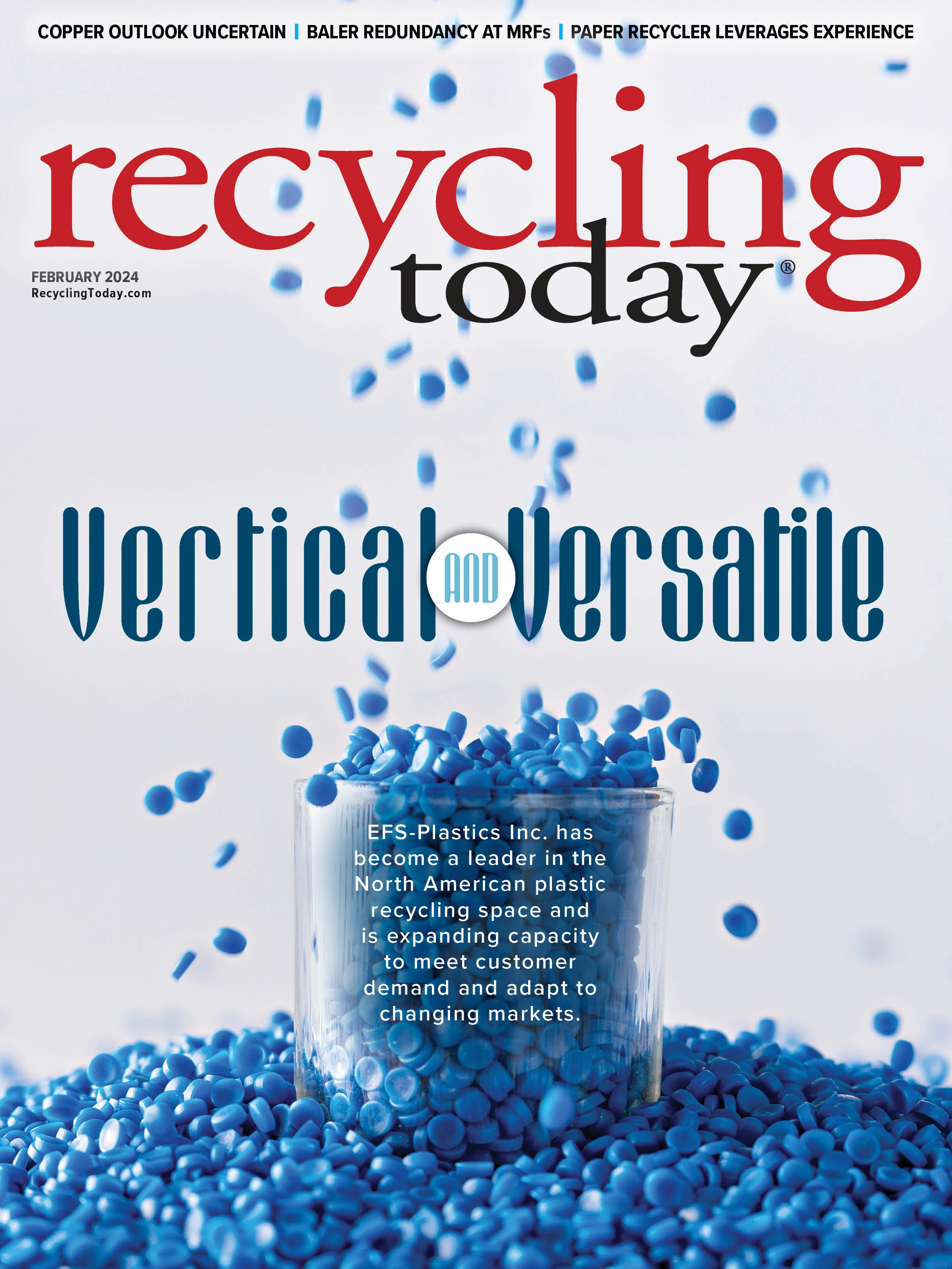CJ McLaughlin
Business development specialist at SciAps

CJ McLaughlin
What do NASCAR and scrap recycling have in common? Other than scrap car parts and various sponsorship deals, they share CJ McLaughlin, business development specialist at Woburn, Massachusetts-based SciAps and part-time NASCAR driver.
Before McLaughlin entered the scrap industry, one of his first racing sponsors was an auto salvage yard.
“I would crash a car [and] they would have another car waiting there for me,” he says. “They were really beneficial in getting my career started.”
SciAps’ initial relationship with McLaughlin was as a racing sponsor. After he saw the company sponsor a car in California, McLaughlin approached SciAps as a potential advertising partner in the NASCAR space. This partnership eventually led to a job offer in SciAps’ oil and gas department.
Five years later, McLaughlin has transitioned to the scrap industry and is responsible for marketing SciAps’ scrap metal analyzers to potential clients.
Handling sales responsibilities while driving for NASCAR is a balance, but he says wearing multiple hats always has been his forte. Plus, clients typically are understanding if he has to cut a sales call short to leave for racing practice.
McLaughlin maintains a similar level of empathy for his clients. “Right now, the commodity markets are a little tough,” he says. “[I try to] understand the customers [and] what they go through every day.”
Developing close relationships with his clients not only has been crucial to his success but also an unexpected perk of working in the industry.
“That’s one of the cool things about the scrap industry,” he says. “They went from being my customers to … my friends. I’ve never really had that before.”
McLaughlin discusses the uniqueness of the scrap industry and the importance of using scrap metal analyzers in the following interview.
“What’s cool about the scrap and recycling materials industry is that it’s gray-collar.”
Recycling Today (RT): What are ways to recruit professionals into the recycling sector?
CJ McLaughlin (CM): What’s cool about the scrap and recycling materials industry is that it’s gray-collar. There’s a good mixture of white-collar jobs and blue-collar jobs.
With the midsize yards, you’ll have somebody in the office and then going out and loading a trailer. It’s two fun things, [and] I love that aspect. I love doing something different every day. Being able to go out and [work in an office or with your hands] is fun. … You become well-versed in multiple jobs.
RT: Are there any new technologies you hope to see embraced by the industry?
CM: There are recycling facilities out there that are on the smaller side that still don’t use analyzers. … There are some facilities that are stuck in their ways. They’re like, “I know every metal that comes in here. I’ve been doing this for 50 years.” That’s the way they do it, and I don’t knock them. [But] they should definitely try [an analyzer] out for a little while just to see that maybe their 316 isn’t 316.
I think the bigger facilities are going to go [into] all integrated Wi-Fi networks where they can track and log every load that comes in every time they pull the trigger on the gun. They’re getting data right away, and they can process more data.
RT: What are the benefits of moving toward a more technologically advanced scanning system?
CM: If they’re not segregating their alloys, they’re losing money. Especially when the market spread was larger. … That’s the biggest thing. If you don’t know what you’re selling, and you don’t know where you’re buying, you’ll lose the ability to keep track and then keep inventory of what you have.

Explore the February 2024 Issue
Check out more from this issue and find your next story to read.
Latest from Recycling Today
- Japanese scrap can feed its EAF sector, study finds
- IRG cancels plans for Pennsylvania PRF
- WIH Resource Group celebrates 20th anniversary
- Ecobat touts commissioning 3 LIB recycling plants in a year
- NWRA: NIOSH cuts a step in the wrong direction
- Novelis announces plant closures
- ABTC reports production increase at LIB recycling facility
- ReMA contributes comments in Commerce Department investigation into copper







